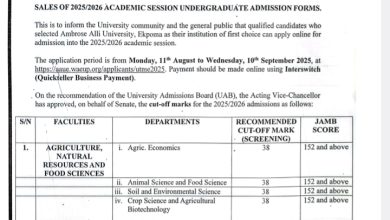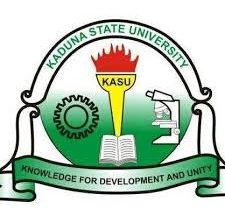
How Schools Gives Admission in Nigeria
There are three major criteria used to determine who gets admitted: Merit, Catchment Area, and Educationally Less Developed States (ELDS).
A lot of you keep saying things like,
“Why? I scored 78% and they didn’t give me admission, and someone with 66% was admitted into the same course I picked.”
I’m going to explain to you what really went wrong. Why you had the score, but not the admission. You need to understand how the system works beyond just scoring high.
Just relax and read to end. After reading the whole article, you’ll see where the mistake happened, and how to avoid it next time.
I will be making use of University of Ilorin (UNILORIN) most in examples, that’s because i graduated from the school and i understand the school works.
There are three major criteria used to determine who gets admitted:
Merit, Catchment Area, and Educationally Less Developed States (ELDS).
Now, let’s talk extensively about MERIT ADMISSION.
Merit admission is strictly based on your performance, nothing more, nothing less.
No catchment. No state advantage. Just pure results.
It is the most competitive slot every school offers, and it usually goes to students with the highest aggregate scores.
Now, when we say aggregate score, it simply means your total performance, that includes:
• Your UTME (JAMB) score
• Your Post UTME score (if the school conducts one)
• And sometimes, your O-Level grades
But different schools have different grading formulas. Some divide the total by 8, some by 100, some use a percentage-based system.
Example
UNILORIN will rank all students who applied for a course and pick the highest scores first under the merit list, regardless of the state you’re from.
So What’s the Point?
You can’t just say “I scored 300” and expect automatic admission. If others scored higher, or your O-Level wasn’t strong, you may miss out.
That’s why merit list is very tight, it doesn’t consider state, quota, or anything like that.
It’s raw performance.
So if you’re aiming for Medicine, Law, Nursing, Engineering, etc., and you want to enter through merit, your score must be top-tier.
NOW LET’S TALK ABOUT
CATCHMENT AREA ADMISSION
Now, this is where many people, even some so-called consultants get it twisted.
You hear them shouting “catchment, catchment” but most don’t understand how it really works.
Catchment area admission gives special advantage to students from states that are geographically or historically close to the university.
So let’s say UNIVERSITY OF IBADAN is in Oyo State, states like Lagos, Ogun, Osun, Ondo, Ekiti will be considered as catchment states for the University of Ibadan.
ANOTHER EXAMPLE
Let’s use UNILORIN (University of Ilorin) as an example to explain Catchment Area Admission.
UNILORIN is located in Kwara State, which is in the North Central region of Nigeria.
Now, because of the catchment policy, students from states that are geographically close to Kwara have an advantage when applying.
So, states like Kogi, Niger, Benue, Nasarawa, Plateau, And even FCT (Abuja) are considered catchment states for UNILORIN.
If you are from one of those neighboring states, your chances of gaining admission are higher even if your score is slightly lower than the merit cut-off.
For UNILAG, the catchment states are:
Lagos, Ogun, Oyo, Osun, Ekiti, and Ondo.
A student from Lagos with 65 may get admitted before someone from Enugu with 68, simply because Lagos is in the catchment zone.
You can see the reason why you may not be considered admission…CATCHMENT ADMISSION
I’m trying to break them down by using UNILORIN
Let’s say two students are applying for the same course, one is from Kogi State, and the other is from Abia State.
If both of them score around the same aggregate, example, let say they both have 55% of 100% Aggregate score, the one from Kogi will likely be admitted first because Kogi is a catchment state for UNILORIN, while Abia is not.
Even if the student from Abia has a slightly higher score, UNILORIN might still favor the Kogi candidate under the catchment quota.
That’s how the system works it’s not only about score, but also about where you’re from.
THE LAST ONE
EDUCATIONALLY LESS DEVELOPED STATES (ELDS) ADMISSION
The ELDS policy is one of the three major criteria used in Nigeria’s federal university admission system. It was introduced to promote equal educational opportunities across all regions of the country.
Some states in Nigeria are considered educationally disadvantaged due to factors like:
• Fewer tertiary institutions
• Low number of applicants yearly
• Weak access to quality education
• Poor infrastructure and learning resources
To balance this inequality, the Federal Government reserves special admission slots for candidates from these states in federal universities.
Thank you for reading, stay tuned on my next article on states that benefit from ELDS Admission and Region and their Catchment States










